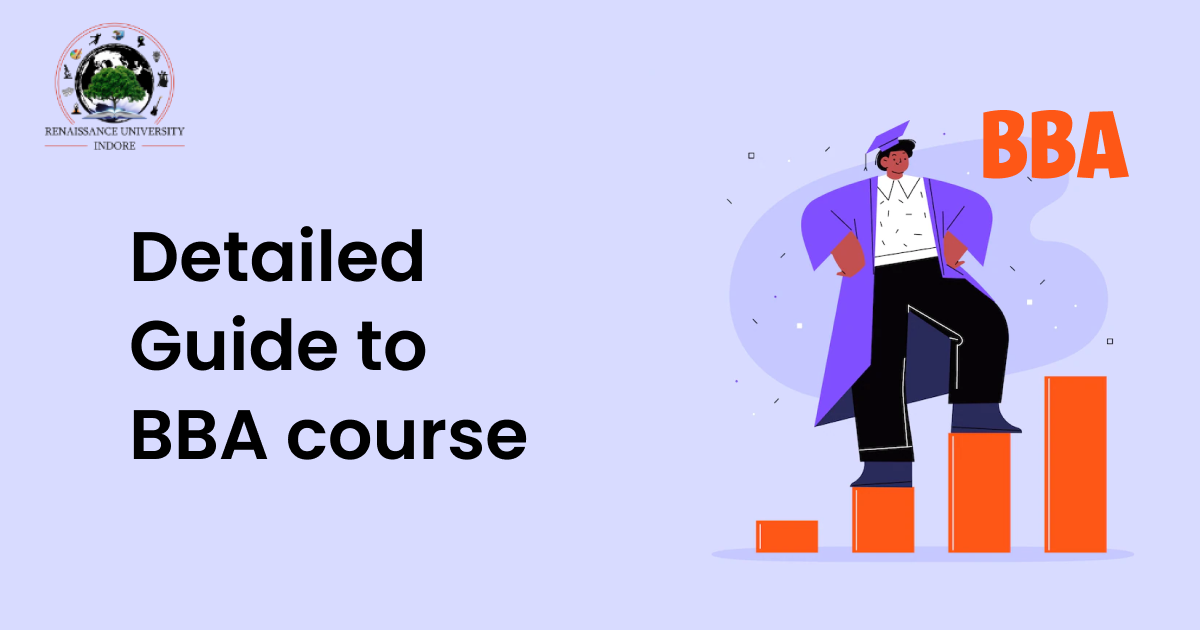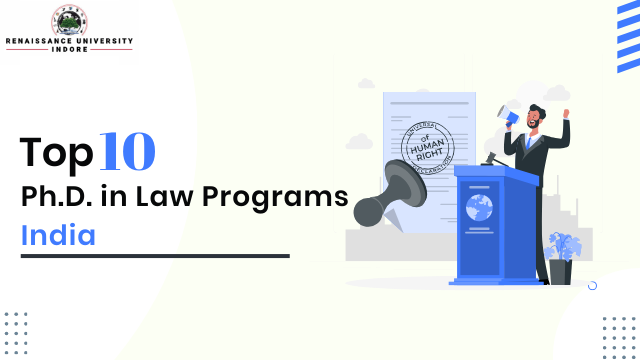Choosing the right degree after completing high school is one of the most crucial decisions that a student can make. The decision not only impacts their academic life but also plays a vital role in shaping their career prospects and future opportunities. With the multitude of degree options available, it can be overwhelming to choose the right one. In this blog, we will explore the top 10 best degrees after the 12th, considering factors such as job prospects, salary, and growth opportunities. Whether you’re interested in science, engineering, business, humanities, or arts, there’s something for everyone on this list. So, let’s dive in and explore the top 10 best degrees after the 12th.
High Salary Courses After 12th
| Course Name |
Course Duration |
Eligibility |
Course Type |
| Bachelor’s in Business Administration |
3 Years |
10+2 or equivalent examination |
Bachelor’s |
| Master’s in Business Administration |
2 Years |
Bachelor’s degree |
Master’s |
| Bachelors in Engineering |
4 Years |
10+2 or equivalent examination |
Bachelor’s |
| Bachelor in Computer Application |
5 Years |
10+2 or equivalent examination |
Bachelor’s |
| Master in Computer Application |
3 Years |
Bachelor’s degree in Computer Science |
Bachelor’s |
| Bachelor of Fashion Design |
4 Years |
10+2 or equivalent examination |
Bachelor’s |
| Bachelor of Mass Communication |
3 Years |
10+2 or equivalent examination |
Bachelor’s |
| Bachelor of Journalism and Mass Communication |
3Years |
10+2 or equivalent examination |
Bachelor’s |
| Bachelor of Science in Nursing |
4Years |
10+2 or equivalent examination |
Bachelor’s |
| Legum Baccalaureus or LLB |
3 Years |
Graduation in any stream |
Bachelor’s |
1) Bachelor of Business Administration (BBA)
Bachelor of Business Administration (BBA) is an undergraduate degree program in the field of management that prepares students for a career in business and management. BBA is a three-year course that provides a broad understanding of business administration and management. The course curriculum focuses on building a strong foundation in various aspects of management, such as marketing, finance, operations, human resource management, and entrepreneurship.
To be eligible for the BBA course, candidates must have completed their 10+2 or equivalent examination from a recognized board with a minimum of 50% aggregate marks. Some colleges and universities may have additional eligibility criteria, such as qualifying for entrance examinations.
The BBA course curriculum covers various subjects related to business and management, such as business communication, organizational behavior, accounting, economics, marketing, human resource management, operations management, financial management, and entrepreneurship. The course is designed to provide students with a comprehensive understanding of the functioning of business organizations and the skills required to manage them effectively.
After completing the BBA course, students can pursue various career paths in the business and management field. Some of the popular job roles for BBA graduates include:
- Business Development Executive
- Marketing Executive
- Human Resource Executive
- Operations Executive
- Financial Analyst
- Management Trainee
- Sales Executive
- Entrepreneur
- Supply Chain Manager
- Project Manager
BBA graduates can also pursue higher studies in management, such as MBA, PGDM, or other specialized courses in management. Overall, the BBA course provides a strong foundation for a career in business and management and prepares students for a wide range of job opportunities in various industries.
2) Master’s in Business Administration (MBA)
Master’s in Business Administration (MBA) is a postgraduate degree program that focuses on developing advanced management and leadership skills in students. The course duration is typically 2 years, divided into four semesters, but some universities may offer it as a 1-year program as well. MBA programs are available in a variety of specializations, such as Marketing, Finance, Human Resource Management, Operations Management, and Information Technology.
An MBA program varies from one university to another, but the general requirements include a Bachelor’s degree in any discipline from a recognized university with a minimum aggregate score of 50%. Some universities may also require work experience and proficiency in English language skills. Additionally, students are required to clear the entrance exams such as CAT, MAT, XAT, GMAT, or CMAT, which are conducted at the national or state level.
MBA graduates have a variety of career options available to them in various industries, including finance, marketing, human resources, operations, and consulting. Some popular job roles include management consultants, marketing managers, financial analysts, business development managers, operations managers, and human resource managers. The average salary for MBA graduates varies based on their specialization, university, and work experience.
Furthermore, an MBA program provides students with an opportunity to develop strong business acumen and leadership skills, which are highly valued by employers. Graduates of an MBA program can also start their own businesses or pursue further studies in related fields such as a Ph.D. in Management.
3) Bachelor of Engineering (B.E.)
Bachelor of Engineering (B.E.) is an undergraduate degree program that typically spans four years and is designed to provide students with a solid foundation in the fundamentals of engineering principles and practices. The course is offered in various specializations such as Civil Engineering, Computer Science and Engineering, Electronics and Communication Engineering, Mechanical Engineering, Electrical Engineering, Chemical Engineering, etc. The curriculum for B.E. programs includes both theoretical and practical aspects of engineering, with a strong focus on problem-solving and critical thinking skills.
Eligibility Criteria:
The eligibility criteria for B.E. programs vary from one college/university to another. However, the general eligibility criteria are as follows:
- Candidates should have passed 10+2 or equivalent examinations with Physics, Chemistry, and Mathematics as mandatory subjects.
- They should have scored a minimum of 50% marks in aggregate in their 10+2 examination.
B.E. graduates have a wide range of career opportunities available to them, both in India and abroad. Some of the most popular career options for B.E. graduates are as follows:
- Engineering Services: B.E. graduates can work as design engineers, project managers, and consultants in various engineering services firms.
- Research and Development: B.E. graduates can work in research and development roles in industries such as automotive, aerospace, defense, and manufacturing.
- Public Sector Jobs: B.E. graduates can also apply for jobs in public sector organizations such as Indian Railways, BHEL, and ISRO, among others.
- Higher Studies: B.E. graduates can pursue higher studies such as M.E./M.Tech, MBA, or Ph.D. in engineering or related fields.
In conclusion, pursuing a Bachelor of Engineering degree can be an excellent career choice for those who are passionate about science, mathematics, and technology. It provides students with a strong foundation in engineering principles and practices, as well as a wide range of career opportunities in various fields.
4) Bachelor of Computer Applications (BCA)
Bachelor of Computer Applications (BCA) is an undergraduate degree program that focuses on computer science, software development, and computer applications. The course duration is typically three years and is designed to provide students with a solid foundation in computer programming, software development, database management, and computer networking.
Eligibility: To be eligible for a BCA program, students must have completed their 10+2 education from a recognized board with Mathematics as a subject. The minimum required percentage may vary depending on the institution.
Course Curriculum: The course curriculum of BCA covers a range of subjects including Programming Languages such as C, C++, Java, and Python, Database Management Systems, Data Structures, Web Development, Computer Networks, and Operating Systems. Students are also required to undertake various projects and internships to gain practical knowledge and hands-on experience in the field.
Career Options: After completing a BCA degree, students can choose to pursue various job roles such as software developer, database administrator, network administrator, web developer, system administrator, software tester, etc. Graduates can work in a variety of industries such as IT, e-commerce, healthcare, finance, education, and many more. They can also opt for higher studies such as MCA, MBA, or a specialized course in computer science or related fields.
In conclusion, BCA is an excellent undergraduate degree program for students interested in computer science, software development, and computer applications. It provides a strong foundation in the field and opens up various career opportunities in the IT industry.
5) Master in Computer Application (MCA)
Master in Computer Application (MCA) is a postgraduate degree program that is designed to provide advanced knowledge and skills in computer applications. The course covers various topics such as programming languages, software development, computer networks, database management, and computer architecture. MCA is a highly sought-after course for students who are interested in pursuing a career in the IT industry.
To be eligible for the MCA course, a candidate must have a Bachelor’s degree in Computer Science, Information Technology, or any other related field. The candidate must have studied Mathematics as a subject in their undergraduate course. The minimum qualifying marks may vary from institute to institute but typically range from 50% to 60%.
-
Career Options after MCA:
After completing MCA, students can explore various career options in the IT industry. Some of the popular career options are:
- Software Developer: MCA graduates can work as software developers and develop software applications for various industries.
- Database Administrator: MCA graduates can work as database administrators and manage the databases of organizations.
- Network Administrator: MCA graduates can work as network administrators and manage the networks of organizations.
- Web Designer: MCA graduates can work as web designers and design websites for various businesses.
- System Analyst: MCA graduates can work as system analysts and analyze the IT needs of organizations and suggest solutions.
- IT Consultant: MCA graduates can work as IT consultants and provide guidance and advice to organizations on various IT-related issues.
Overall, MCA is a highly specialized course that offers excellent career opportunities in the IT industry.
6) Bachelor of Fashion Design (BFD)
Bachelor of Fashion Design (BFD) is a popular undergraduate degree course for students who want to pursue a career in the fashion industry. The course duration is generally three to four years, depending on the institute and the curriculum. BFD is designed to provide students with a comprehensive understanding of the fashion industry, including the various aspects of design, production, marketing, and management.
The eligibility criteria for a Bachelor of Fashion Design may vary from institute to institute, but generally, the following requirements are mandatory:
- The candidate must have completed 10+2 or equivalent from a recognized board.
- Some institutes also require candidates to have studied Art or Design at the 10+2 level.
- Some institutes may also conduct an entrance exam to shortlist the candidates.
The course curriculum for the Bachelor of Fashion Design generally includes the following subjects:
- History of Fashion
- Fashion Designing
- Textile Science
- Fashion Illustration
- Garment Construction
- Pattern Making
- Merchandising
- Fashion Marketing
- Fashion Retail Management
- Fashion Photography
After completing a Bachelor of Fashion Design, there are a variety of career options available to graduates. Some of the popular career options include:
- Fashion Designer
- Fashion Stylist
- Fashion Illustrator
- Fashion Merchandiser
- Fashion Consultant
- Fashion Entrepreneur
- Textile Designer
- Fashion Buyer
- Fashion Journalist
- Costume Designer
In conclusion, a Bachelor of Fashion Design is an exciting course that provides students with a range of career options in the fashion industry. Students who have a creative flair and are passionate about fashion can consider pursuing this course for a fulfilling career.
7) Bachelor of Mass Communication
Bachelor of Mass Communication is an undergraduate degree program that focuses on developing skills in media and communication, including journalism, advertising, public relations, and digital media. The course aims to provide students with a comprehensive understanding of the media industry and the skills required to work in various roles.
To be eligible for a Bachelor of Mass Communication program, students must have completed their 10+2 education from a recognized board with a minimum of 50% marks. Some universities may also require students to clear an entrance examination before admission.
The course curriculum of a Bachelor of Mass Communication program may vary from university to university, but it generally covers subjects like media ethics, news writing, reporting, feature writing, advertising, public relations, film studies, media law, and digital media. Students may also have the option to choose electives based on their interests and career aspirations.
After completing a Bachelor of Mass Communication program, students can pursue various career options, including:
- Journalist: A journalist is responsible for gathering information, writing news stories, and presenting them to the public through various media platforms such as newspapers, television, or online media.
- Advertising and Public Relations Specialist: Advertising and Public Relations Specialists work for companies, organizations, or individuals to create and maintain a positive public image by developing and executing effective communication strategies.
- Content Creator: With the rise of digital media, content creators are in high demand. They create content for social media platforms, blogs, vlogs, podcasts, and other digital media channels.
- Media Planner: A media planner is responsible for planning and executing advertising campaigns across various media platforms, such as television, radio, print, and digital media.
- Filmmaker: Filmmakers create films, documentaries, or web series on various topics.
Overall, a Bachelor of Mass Communication program provides students with a broad range of career options and equips them with the skills and knowledge necessary to succeed in the media industry.
8) Bachelor of Journalism and Mass Communication (BJMC)
Bachelor of Journalism and Mass Communication (BJMC) is a 3-year undergraduate degree program that provides students with the necessary knowledge and skills to work in the field of journalism and mass communication. This course is designed to develop students’ ability to communicate effectively, think critically, and analyze information. It covers various aspects of journalism and mass communication, such as print journalism, electronic media, advertising, public relations, and corporate communication.
The minimum eligibility criteria for BJMC may vary from college to college, but the following are the general requirements:
- The candidate must have passed 10+2 from a recognized board with a minimum of 50% marks in aggregate.
- The candidate should have studied English as a compulsory subject.
- Some colleges may conduct entrance exams for admission.
-
Career options after BJMC:
After completing BJMC, students can explore various career options in the field of journalism and mass communication. Some of the career options are:
- Journalist: A journalist is responsible for collecting and reporting news and current affairs for newspapers, magazines, TV channels, and online media.
- News Anchor: A news anchor presents news to the audience on TV channels and radio.
- Content Writer: A content writer is responsible for creating written content for websites, blogs, social media, and other platforms.
- Public Relations Officer: A public relations officer is responsible for maintaining the image of an organization or individual by managing their communication with the public and media.
- Advertising Executive: An advertising executive is responsible for creating and managing advertising campaigns for clients.
In conclusion, BJMC is a great option for students who are interested in pursuing a career in journalism and mass communication. It provides a wide range of career opportunities in various fields and is a great way to develop communication skills and analytical abilities.
9) Bachelor of Science in Nursing (BSc Nursing)
Bachelor of Science in Nursing (BSc Nursing) is a four-year undergraduate course that focuses on developing the skills and knowledge required for a career in nursing. It aims to equip students with the theoretical knowledge and practical skills necessary to provide high-quality healthcare services to patients.
-
Eligibility for BSc Nursing:
To be eligible for the BSc Nursing course, candidates must have completed their 10+2 education from a recognized board or university with at least 45-50% aggregate marks in the science stream (Physics, Chemistry, and Biology). Additionally, candidates must have also passed the entrance exam conducted by various universities and institutions offering the BSc Nursing course.
The BSc Nursing course curriculum is divided into eight semesters. In the initial semesters, students study basic medical subjects like Anatomy, Physiology, Microbiology, Nutrition, and Biochemistry. Later, the course focuses on advanced topics such as Nursing Management, Community Health Nursing, Child Health Nursing, Medical-Surgical Nursing, Mental Health Nursing, and Obstetric and Gynecological Nursing. In addition to theoretical learning, students also undergo clinical training in hospitals and healthcare centers to gain practical knowledge and experience.
BSc Nursing graduates can find employment opportunities in various sectors such as government and private hospitals, clinics, nursing homes, community health centers, and other healthcare settings. They can work as Staff Nurses, Nursing Assistants, Nurse Educators, Nursing Administrators, Clinical Nurse Specialists, and Nurse Practitioners. Additionally, they can also pursue higher education like MSc in Nursing, Ph.D. in Nursing, or specializations in areas like Critical Care Nursing, Oncology Nursing, Pediatric Nursing, and Psychiatric Nursing.
In conclusion, BSc Nursing is a rewarding and challenging course that prepares students for a career in nursing. It offers excellent career opportunities, job security, and the opportunity to positively impact people’s lives.
10) Legum Baccalaureus, commonly known as LLB
Legum Baccalaureus, commonly known as LLB, is an undergraduate degree program in law. It is a three-year course that focuses on legal studies and provides students with an in-depth understanding of various aspects of the legal system.
Eligibility criteria for LLB may vary from one university to another, but generally, a candidate must have completed their graduation in any stream with at least 50% marks. In addition, some universities also require candidates to clear an entrance exam to qualify for the course.
LLB covers a wide range of subjects such as criminal law, contract law, constitutional law, family law, property law, labor law, and environmental law. The course provides students with a theoretical and practical understanding of the legal system, its functions, and its application in real-life scenarios.
- Legal Practitioner: After completing an LLB degree, graduates can become legal practitioners and practice law in various courts, tribunals, and legal firms.
- Corporate Lawyer: Many companies and businesses require legal professionals to handle their legal affairs, and LLB graduates can work as corporate lawyers in such organizations.
- Public Prosecutor: LLB graduates can also work as public prosecutors in the criminal justice system, representing the state in criminal cases.
- Legal Advisor: LLB graduates can also work as legal advisors in various organizations, providing legal guidance and advice on various matters.
- Academia: LLB graduates can pursue further studies in law and become law professors, researchers, or scholars.
Overall, LLB is a promising course for those interested in the legal field and provides a wide range of career opportunities to graduates.
Which courses are in high demand after 12th?
Let’s explore the landscape of post-12th education, shedding light on the courses that are not only popular but also promise promising career prospects.
-
Data Science and Analytics
In the age of information, data has become the currency of the future. Courses in data science and analytics have seen a remarkable surge in popularity. As businesses harness the power of big data to drive decision-making, professionals skilled in data analysis, machine learning, and artificial intelligence are in high demand. Students opting for courses in this domain can find themselves at the forefront of innovation, helping organizations make data-driven decisions.
-
Cybersecurity:
With the increasing frequency of cyber threats, the demand for cybersecurity experts is soaring. Courses in cybersecurity equip students with the skills to protect digital infrastructure, networks, and sensitive information from cyber attacks. As businesses and governments prioritize online security, a career in cybersecurity offers not only job security but also the opportunity to be a frontline defender against evolving cyber threats.
-
Artificial Intelligence and Machine Learning:
Artificial Intelligence (AI) and Machine Learning (ML) are transforming industries across the globe. From self-driving cars to personalized recommendations, the applications of AI and ML are vast. Courses in these fields delve into algorithms, pattern recognition, and the development of intelligent systems. Graduates with expertise in AI and ML find themselves in high demand in sectors ranging from healthcare to finance, contributing to groundbreaking technological advancements.
-
Healthcare and Paramedical Courses:
The healthcare sector is witnessing unprecedented growth, and the demand for skilled professionals is surging. Courses in nursing, physiotherapy, medical laboratory technology, and other paramedical fields are becoming increasingly popular. As the world focuses on health and wellness, graduates in these courses play a crucial role in providing essential services, contributing to the well-being of communities.
-
Environmental Science and Sustainability Studies:
The global focus on sustainability has elevated the importance of environmental science and sustainability studies. Courses in this domain explore solutions to environmental challenges, emphasizing sustainable practices. Graduates can find opportunities in environmental consulting, renewable energy, and conservation, playing a vital role in building a more sustainable future.
Are there any short-term professional courses available after 12th?
Yes, many students opt for traditional degree programs, there is a growing trend towards short-term professional courses that offer a quicker route to entering the workforce. Let’s explore the world of short-term professional courses available after 12th grade, shedding light on their benefits and the diverse array of options that can set you on the path to early career success.
Popular Short-Term Professional Courses:
- Digital Marketing Certification: In the era of online businesses, digital marketing skills are highly sought after. Short-term courses in digital marketing cover areas such as social media marketing, search engine optimization, and content creation.
- Graphic Design and Multimedia Courses: With the increasing demand for visually appealing content, short-term courses in graphic design and multimedia offer hands-on training in tools like Adobe Creative Suite, preparing students for creative roles.
- Data Analytics and Business Intelligence: As data-driven decision-making becomes integral to businesses, short-term courses in data analytics and business intelligence provide essential skills in data interpretation and analysis.
- Web Development Bootcamps: With the booming tech industry, web development bootcamps offer a quick path to mastering coding languages and building websites, making graduates ready for entry-level positions in the IT sector.
- Hospitality and Event Management Courses: For those interested in the hospitality and event industry, short-term courses cover event planning, customer service, and hospitality management, providing a foundation for careers in this dynamic field.
Benefits of Short-Term Professional Courses:
- Quick Entry into the Workforce: Short-term courses are designed to equip students with practical skills required in specific industries. This enables them to enter the workforce sooner compared to traditional degree programs that may take several years to complete.
- Cost-Effectiveness: Pursuing a short-term course is often more cost-effective than enrolling in a full-fledged degree program. This makes it an attractive option for those looking to acquire specialized skills without incurring significant financial burdens.
- Flexibility and Specialization: Short-term courses are tailored to specific industries or skill sets, allowing students to choose a field of study that aligns with their interests and career goals. This flexibility ensures that students acquire targeted knowledge and expertise.
- Adaptability in a Rapidly Changing Job Market: The job market is evolving at a rapid pace, and short-term courses provide a nimble approach to education. Students can quickly adapt to emerging trends and technologies, staying relevant in an ever-changing professional landscape.
Which Courses Guarantee a Good Job After 12th?
The transition from high school to the professional world is a crucial phase in a student’s life. Selecting the right course after 12th can significantly impact one’s career trajectory. While no course can guarantee success, some fields are known to provide better job prospects and opportunities. In this article, we’ll explore courses that not only align with diverse interests but also offer promising career prospects post-12th.
- Engineering: Building Tomorrow’s World Engineering courses have long been synonymous with job security and lucrative careers. Branches such as Computer Science, Electrical, Mechanical, and Civil Engineering continue to be in high demand. With advancements in technology, the demand for skilled engineers is on the rise, making it a promising choice for students who enjoy problem-solving and innovation.
- Medicine: Healing Hands, Secure Futures For those inclined towards the sciences and with a passion for helping others, pursuing a career in medicine is an excellent choice. Becoming a doctor, nurse, or allied health professional opens doors to a stable and rewarding career. The healthcare industry’s continuous growth ensures a steady demand for qualified professionals.
- Information Technology (IT): Navigating the Digital Age In the age of digitization, IT courses offer unparalleled opportunities. Specializations like software development, data science, and cybersecurity are particularly promising. The global tech industry is ever-expanding, and skilled IT professionals are integral to its growth. As businesses evolve, the need for tech-savvy individuals becomes even more critical.
- Finance and Commerce: Mastering the Art of Numbers Commerce and finance-related courses, including B.Com, BBA, and Chartered Accountancy, are known for their stability and financial rewards. The corporate world relies heavily on professionals who can navigate the intricacies of finance and commerce. Graduates in these fields often find themselves in high demand across various industries.
- Business Administration: Shaping Leaders of Tomorrow A degree in Business Administration (BBA or MBA) is an excellent choice for students aspiring to become leaders and managers. These courses provide a holistic understanding of business operations, strategy, and management principles. A strong foundation in business can open doors to diverse career paths, from entrepreneurship to corporate leadership.
- Design and Arts: Creative Minds, Creative Careers For those with a flair for creativity, courses in design and arts can lead to fulfilling careers. Graphic design, fashion design, and interior design are just a few examples of fields that offer scope for artistic expression. As industries emphasize aesthetics and user experience, the demand for skilled designers continues to grow.
While no course can guarantee success, choosing the right educational path after 12th can significantly enhance one’s chances of a fulfilling and prosperous career. The key lies in aligning one’s interests, skills, and passions with the demands of the job market. As industries evolve, so do the opportunities, and staying informed about emerging trends can help students make informed decisions that pave the way for a bright future.











